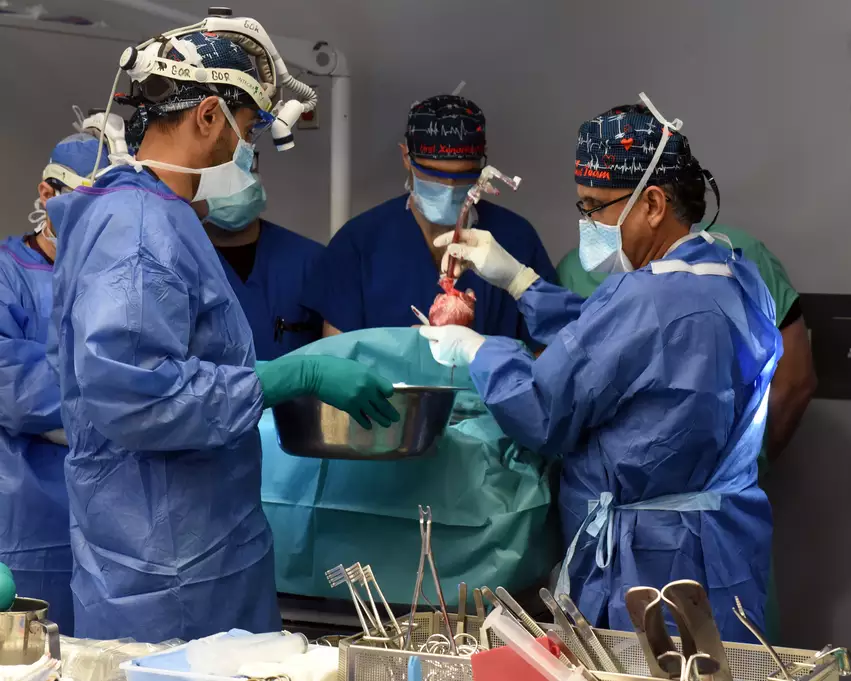Second patient in history to receive a pig heart transplant dies after 6 weeks
Lawrence Faucette, the second patient to ever receive a genetically modified pig heart, died on Oct. 30. He was 58 years old.
Faucette underwent the historic operation at the University of Maryland Medical Center (UMMC) Sept. 20. He was admitted to UMMC Sept. 14 with end-stage cardiovascular disease. His symptoms were related to complications from both heart failure and peripheral vascular disease. The U.S. Food and Drug Administration approved the procedure through its “compassionate use” pathway, determining Faucette had no other options.
“My only real hope left is to go with the pig heart, the xenotransplant,” he said when interviewed before the procedure.
According to UMMC, Faucette had been making “significant progress” after the surgery, speaking with loved ones and even playing cards. However, his body had started rejecting the modified pig heart in recent days, a complication that continued until there was nothing else his care team could do.
Bartley P. Griffith, MD, clinical director of the cardiac xenotransplantation program at the University of Maryland School of Medicine and the surgeon who performed the historic procedure, reflected on the experience in a statement.
“We mourn the loss of Mr. Faucette, a remarkable patient, scientist, Navy veteran, and family man who just wanted a little more time to spend with his loving wife, sons and family,” Griffith said. “Mr. Faucette's last wish was for us to make the most of what we have learned from our experience, so others may be guaranteed a chance for a new heart when a human organ is unavailable. He then told the team of doctors and nurses who gathered around him that he loved us. We will miss him tremendously.”
“Larry's family continues to be in awe of the man that he was and how he has shaped our lives,” Ann Faucette, Lawrence Faucette’s wife, said in the same statement. “He can never be forgotten.”
Looking back at the first patient to receive a modified pig heart
The world’s very first pig heart transplant was completed by UMMC surgeons in January 2022. That patient, 57-year-old David Bennett, died from heart failure two months later. Bennett’s poor health leading up to the procedure has been cited as the primary cause of his death, though evidence also suggests the transplanted heart was infected with a virus.
There is great interest in the heart failure community to enable the use of pig hearts for transplant into humans as a solution to the lack of donor hearts. Pigs have similar anatomy and similar sized and shaped hearts as humans, which is a primary reason why they are used in cardiac device pre-clinical trials.
Heart transplants in 2022 made it a record year, with 4,169 procedures. This increase over pervious years is because of better mechanical perfusion of the organs between explant from a donor and travel to the transplant patient. This includes more than 400 pediatric heart transplants each year.
However, the heart transplant waiting list has had between 4,000-7,000 patients on it each year over the past decade. Many patients will die before receiving a new heart. There also are many more patients who need a transplant, but never make it onto the waiting list.
The American Transplant Foundation said patients are usually disqualified from the heart transplant waiting list if they suffer from severe kidney, lung or liver diseases, pulmonary hypertension, continued use of smoking, drugs or alcohol, HIV, hepatitis, cancer, stroke, diabetes that has caused severe vital organ damage, active infection or malnourishment.


